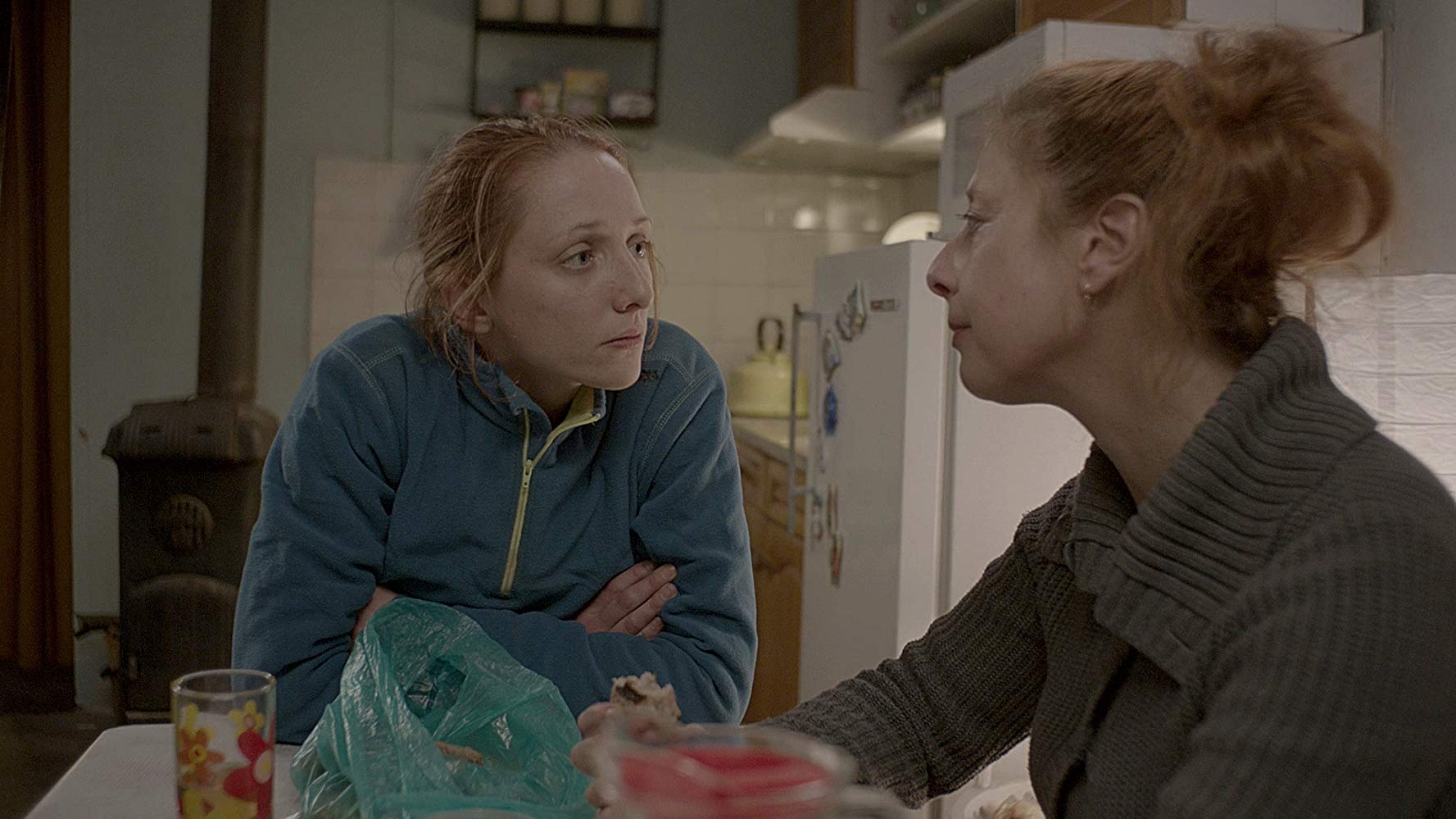
- Golden Globe Awards
Irina (Bulgaria)
A pickaxe digs into the rock – that’s the first sound we hear while the screen is still dark. Then, a woman washes dishes in a restaurant. Fatigue, heavy work, physical contact, these two scenes in parallel are indicative of the working conditions of the spouses involved in the film: Irina and Sasho. Irina is a part-time dishwasher, Sasho is engaged in unidentified mining activity. They are the protagonists of Irina, a portrait of female characters who manage to stay afloat, despite the world seemingly falling on top of them.Following several award-winning short films – among them, Omelette presented at the time at Sundance – Bulgarian director Nadejda Koseva’s first feature gives us the impression of a tight family unit, but the reality is the opposite. Life in Irina’s poor village is tough. Daily routines and interaction with others seem to be frozen in time, particularly during the winter months. We can see that in the hollow faces, scratched by adversity and tough life. Throughout Irina maintains a proud look in the face of the challenges she encounters.One night, upon returning home after she’s been fired from work because she is discovered stealing food from the kitchen to bring to her family, Irina discovers her husband in bed with her sister. To make matters worse, the garden coal mine collapses. Sasho survives the potentially criminal accident but loses the use of his legs. As for Irina, she is forced to look for another way to make a living and save her family from poverty. Her decision is to become a surrogate mother, carrying some strangers’ child for money. In time Irina will discover what it means to love and to forgive…The film, written by Koseva, along with her writing partner Svetoslav Ovharov, received the Golden Owl Grand Prix for Best feature film at the 16th Tirana Film Festival. It also won two awards at Bulgaria’s Golden Rose Film Festival and achieved success at the 28th Cottbus East European Film Festival in Germany where it won two more awards – Best Actress for the lead actress Martina Apostolova and Best Debut for director Nadejda Koseva. In her acceptance speech, she said that her “feminine, but not feminist” story is about rediscovering the world by bringing new life into it. Koseva also says that one of the purposes of her film is to use the story, the actor’s personal experiences and the history of the places where it’s being shot and mix them together to form a more complex whole. Adding that the proportion of real and imaginary elements is as important to her film as that of flour and water in bread making.